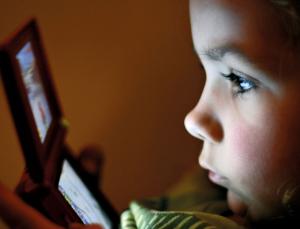26 March 2014 – There has been a wonderful series of articles in New Scientist over the last year on the brain and the neuroscience of reading. A few have focused on an issue every parent has grappled with: is the peace you get by handing your child a touchscreen or sitting them in front of the TV worth the undefined damage you worry it’s causing?
The subject resurfaced last week with one study claiming that screen time was linked with increased BMI and another finding it adversely affected emotional well-being.
The headlines may have struck a chord, but each study faced different criticisms. So just what can we say about screen time?
First of all, lumping all screens into one category is not helpful. When you separate them out, the effects start to vary. For instance, a recent longitudinal study of 11,000 British children found that those who watched TV for 3 hours or more a day at age 5 had a small increase in behavioral problems two years later compared with those who watched for under an hour. But they found no effects at all for those who played computer games.
The rise of portable devices has compounded the issue. Rosie Flewitt at the Institute of Education in London says touchscreens can motivate children, allowing them to use a tool they can see is important to adults. Her research in schools found that iPads increased cooperation and helped quieter kids speak up.
A survey of more than 1000 parents with children aged 3 to 5 and their teachers, out this month, backs up the idea that tablets can promote learning. Children benefited more from using both print and touchscreens for looking at or sharing stories, compared with just print. Importantly, the performance of children from low socio-economic backgrounds who use both at home is less likely to be below average at school than if they only look at books.
The advantages seen in the school environment can be translated into the home – if you choose your digital distraction wisely. Don’t unthinkingly hand over your device. There are educational apps whose benefits are backed up by research, says Flewitt. Consider the type of screen time, says Pete Etchells of Bath Spa University, UK. Five hours of TV is not the same as 5 hours of some TV, a couple of hours of a storytelling app, followed by a Skype session with a grandparent.
And take heart: this generation’s iPad is another’s Jane Austen. “It’s a new era,” says Flewitt. There is a lot of scepticism just like there was when novels took off in the 18th century, she says.

